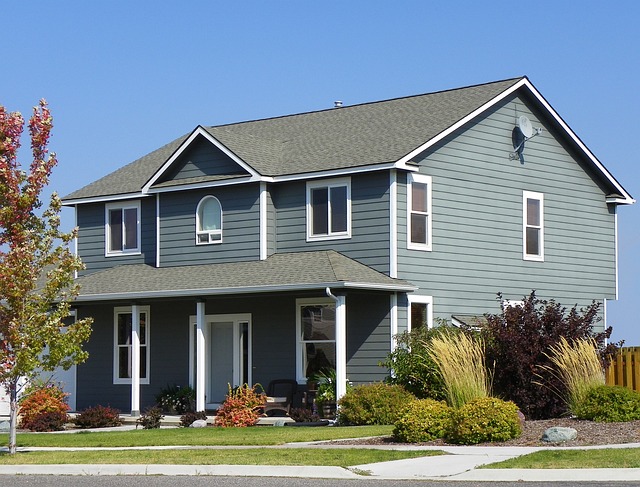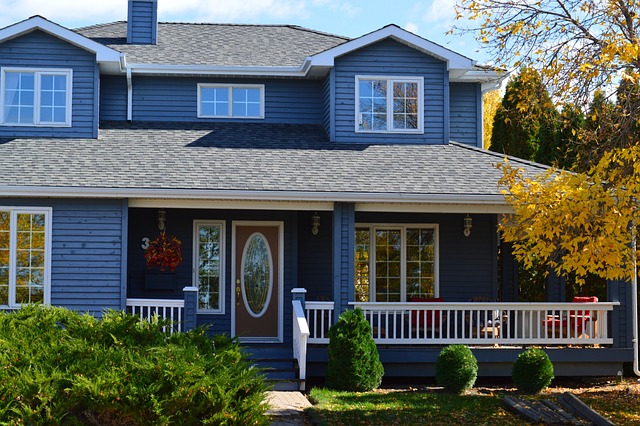EC Price Singapore is an invaluable resource for anyone looking to purchase an Executive Condominium (EC) in Singapore. The process of buying an EC involves meeting eligibility criteria and selecting a unit through the Housing & Development Board (HDB), with pricing information readily available on platforms like Ec Price Singapore. As buyers consider upgrading from an EC, they should weigh the advantages of moving to a Mature Estate, which typically offers better connectivity and more amenities but comes at a higher price point. The decision to upgrade should be informed by the Minimum Occupation Period (MOP), resale lease decay, and overall market trends as reflected in real-time data from Ec Price Singapore. Understanding these factors helps buyers make financially sound decisions that align with their long-term housing goals and adapt to changing life circumstances.
navigating the nuances of housing in Singapore, understanding the Executive Condominium (EC) price spectrum and eligibility criteria is crucial for aspiring homeowners. This article serves as a comprehensive guide, demystifying the EC landscape and its unique position within the property market. We will delve into the specifics of ECs, from their nature as a hybrid between public and private housing to the financial considerations that come with owning one. Whether you’re exploring the EC price trends in various regions or considering the impact of your citizenship status on eligibility, this article provides vital insights. Learn about the mandatory five-year Minimum Occupation Period (MOP), the role of the Total Debt Servicing Ratio (TDSR) in financing, and the step-by-step application process. With a focus on EC price points in Singapore, this guide will equip you with the knowledge to make informed decisions, whether you’re looking to purchase, upgrade, or invest in this dynamic housing segment.
- Understanding Executive Condos (ECs) in Singapore: A Primer on EC Price
- Key Eligibility Criteria for Buying an Executive Condo in Singapore
- The Five-Year MOP: What It Means for EC Owners in Singapore
- Citizenship and Public Housing Schemes: Impact on EC Eligibility
- Assessing Your Financial Capabilities for Purchasing an EC in Singapore
- The Role of Total Debt Servicing Ratio (TDSR) in Buying an EC
- EC Price Trends in Different Regions of Singapore: A Market Analysis
- Public vs Private ECs: Understanding the Differences and Eligibility
- How to Apply for an Executive Condo: The Step-by-Step Process
- Upgrading from an EC to a Mature Estate: What You Need to Know
Understanding Executive Condos (ECs) in Singapore: A Primer on EC Price

In Singapore, Executive Condominiums (ECs) represent a unique housing option for couples and families, offering a balance between public and private housing. Prospective homeowners who are considering an EC should pay close attention to the pricing dynamics within this niche market, as the Ec Price in Singapore can be influenced by several factors. The pricing of ECs is determined by a combination of government subsidies for eligible applicants and market conditions. These condominiums start off at lower price points compared to private condominiums when they are launched, making them an attractive option for those with the Singaporean citizenship or permanent residence status who aspire to own a larger home in a mature estate. The pricing structure also takes into account the lease period remaining on the land, the development’s location, its facilities and specifications, as well as the overall demand in the housing market. As the EC matures and fulfills certain criteria set by the government after a certain period, it transitions to become a private condominium, which can lead to an appreciation in value. For those interested in the Ec Price Singapore, it is advisable to keep abreast of market trends, as prices can fluctuate based on these transitions and broader economic factors. Understanding the intricacies of EC pricing requires a grasp of both the immediate and long-term implications, particularly since the eligibility criteria for purchasing an EC may also evolve over time. Thus, potential buyers should conduct thorough research and consult property experts to navigate the Ec Price Singapore landscape effectively.
Key Eligibility Criteria for Buying an Executive Condo in Singapore

In Singapore, the Executive Condominium (EC) is a housing type designed for couples and families who aspire to own a larger home with condominium facilities at subsidized rates compared to private condos. Prospective buyers must meet specific eligibility criteria to purchase an EC in Singapore. Firstly, applicants must be Singapore citizens aged 21 years or older. They should also not currently own or have an outstanding flat owned under the Housing & Development Board (HDB) flat scheme, and if they do, it must be sold before applying for an EC. Additionally, the monthly household income ceiling to apply for an EC should not exceed S$14,000. This criterion ensures that the EC is accessible to a broader range of middle-income families who aspire to upgrade from a public to a private housing estate without overextending their financial means.
Furthermore, the Ec Price Singapore for an Executive Condo is competitive and varies according to location, development, and market conditions. The pricing framework allows for affordability while offering a range of quality living options. After five years of occupancy or when the EC reaches 10 years old, residents have the option to sell their unit in the open market, which could potentially be at a higher price point than the initial purchase price. This feature makes ECs an attractive and financially sensible choice for those looking to upgrade from public housing without the immediate commitment of a market-rate private condo. Understanding these key eligibility criteria is crucial for potential buyers interested in the Ec Price Singapore and navigating the property landscape in Singapore.
The Five-Year MOP: What It Means for EC Owners in Singapore

In Singapore, the five-month period of minimum occupation (MOP) serves as a pivotal aspect for Executive Condo (EC) owners, as it marks the time frame after which they can sell their unit in the open market. Upon satisfying the MOP, ECs revert to private condominium status, allowing owners to benefit from a wider pool of potential buyers and potentially higher ec price singapore values. The MOP is a crucial policy for maintaining a stable property market and ensuring that public housing remains accessible to first-time homeowners, who are typically the target demographic for ECs.
During the MOP period, EC owners are required to occupy the unit as their sole residential address. Failure to do so may result in penalties or forfeiture of the right to own the property. Once the five-year MOP is completed, owners have the flexibility to sell their units without restriction, which can be advantageous if the ec price singapore has appreciated. This transition also allows existing residents to upgrade to larger or more luxurious homes, contributing to the dynamic nature of Singapore’s housing market and offering opportunities for investment. The MOP thus plays a significant role in the property lifecycle of an EC, influencing both the short-term living arrangements and the long-term capital appreciation potential for its owners.
Citizenship and Public Housing Schemes: Impact on EC Eligibility

In Singapore, the eligibility criteria for Executive Condos (ECs) are clearly defined by the Housing & Development Board (HDB), with citizenship status playing a pivotal role. To be eligible to purchase an EC, both individuals must be Singapore Citizens (SCs) or at least one applicant must be an SC, and the other, a Permanent Resident (PR). This criterion ensures that ECs primarily benefit Singaporeans, providing them with affordable housing options. It’s also worth noting that previous public housing occupiers have an advantage in the balloting process for ECs. This preference reflects the government’s commitment to assisting citizens who have lived in public housing and are ready to progress to the next step on the housing ladder. The impact of this eligibility requirement is significant, as it shapes the demographic of EC residents, typically catering to young couples and families who aspire to own a home but may not yet afford private property prices, as reflected in the EC Price Singapore trends.
Furthermore, the connection between public housing schemes and EC eligibility extends beyond citizenship. The HDB’s policies encourage first-time applicants to prioritize ECs over resale flats, considering the long-term benefits of owning an EC. These benefits include potential equity gain, which can be substantial given the right market conditions and proximity to future MRT stations, as seen in several EC launches. This aspect of eligibility is particularly relevant for young couples looking to maximize their investment value over resale flats. As a result, the EC Price Singapore remains competitive within the property market, offering a middle ground between public housing and private property, and catering to the aspirations of upwardly mobile Singaporeans.
Assessing Your Financial Capabilities for Purchasing an EC in Singapore

When considering the purchase of an Executive Condominium (EC) in Singapore, assessing your financial capabilities is a critical step. Prospective buyers must meet the Minimum Occupation Period (MOP) requirement, where they or their spouse must have fulfilled the MOP of at least 5 years living in a resale flat before applying for an EC. This ensures that applicants are settled and ready to commit to an EC as their residence for the next few years. The EC price in Singapore is competitive, offering a happy medium between private condominiums and public housing. When evaluating your financial readiness, it’s important to consider the Total Debt Servicing Ratio (TDSR) and Mortgage Servicing Ratio (MSR) regulations, which cap the proportion of income that can be used for repaying all types of outstanding debt and mortgage servicing, respectively. This protects buyers from over-committing and ensures a sustainable financial future. The pricing of ECs in Singapore is transparently listed by developers, allowing potential buyers to research and compare EC prices across different projects. It’s advisable to calculate your monthly expenses, income, and financial obligations meticulously to ascertain if an EC fits within your budget. With the help of a bank loan or HDB loan, buyers can finance their purchase, but it’s crucial to account for additional costs such as legal fees, stamp duties, and maintenance fees, which are over and above the EC price in Singapore. By carefully assessing your financial capabilities and understanding the associated costs, you can make an informed decision on whether an Executive Condominium is a suitable housing option for you and your family.
The Role of Total Debt Servicing Ratio (TDSR) in Buying an EC

In the realm of property investment in Singapore, the Executive Condominium (EC) presents an attractive option for both first-time homeowners and upgraders due to its affordability relative to other public housing options. A pivotal factor that influences the eligibility and financial planning for prospective EC buyers is the Total Debt Servicing Ratio (TDSR). This regulatory framework, implemented by the Monetary Authority of Singapore (MAS), caps an individual’s total monthly debt repayment at a sustainable level, which is 60% of their monthly income. The TDSR ensures that homebuyers are not overextending themselves, thereby reducing the risk of loan defaults and fostering a stable property market. For potential EC buyers, understanding how TDSR applies to an EC price in Singapore is crucial. It dictates the maximum amount one can borrow from financial institutions for all types of outstanding loans, including home loans. Prospective buyers must assess their income and existing obligations against the TDSR benchmark before committing to an EC purchase. This measure protects buyers from overcommitting to mortgage repayments, which in turn safeguards their ability to service their loans even if interest rates rise. Thus, when considering the competitive pricing of ECs in Singapore, it is imperative for buyers to factor in the TDSR limits to ensure they remain within their financial comfort zone. This approach not only supports sustainable home ownership but also contributes to the overall health and stability of Singapore’s property market.
EC Price Trends in Different Regions of Singapore: A Market Analysis

In recent years, Executive Condominium (EC) price trends in Singapore have exhibited a dynamic and region-specific evolution. Prospective buyers interested in ECs in Singapore must consider the varying prices across different regions, as these are influenced by factors such as proximity to amenities, accessibility, and the overall property market’s sentiment. The pricing of ECs in mature estates like Sengkang, Tampines, and Bishan has shown resilience, often reflecting a premium due to their well-established infrastructure and connectivity. Conversely, new EC launches in non-mature estates such as Sembawang, Canberra, and Woodlands have been observed to offer more competitive pricing, making them attractive options for first-time homeowners or upgraders. The ec price Singapore landscape is further segmented by the location’s attractiveness, with ECs near regional centers and business hubs commanding higher prices due to their convenience and potential for capital appreciation. Market analysts suggest that a keen understanding of these trends and factors influencing them is crucial for buyers aiming to make informed decisions in the EC market within Singapore.
Public vs Private ECs: Understanding the Differences and Eligibility

In Singapore’s dynamic housing market, Executive Condos (ECs) serve as a popular housing option for couples and families alike, offering a balance between public and private housing. Prospective residents often ponder over the choice between public and private ECs, particularly considering the ec price in Singapore which can vary significantly. Public ECs are developed and sold by government bodies like the Housing & Development Board (HDB), while private ECs are built on land acquired through the Government Land Sales programme and are usually developed by private developers. The key difference lies in the lease duration; public ECs come with a 99-year lease, identical to HDB flats, whereas private ECs come with a longer 99-year or freehold tenure. This aspect is crucial for those considering resale value and long-term investment potential.
Eligibility criteria for ECs are structured to cater to different needs. To be eligible for a public EC, applicants must meet the Minimum Occupation Period (MOP) requirement, where at least one applicant must have been employed for at least three months, and total monthly income should not exceed SGD14,000. For families with young children, there are also 2-room to 5-room ECs that come with facilities like playgrounds and swimming pools. On the other hand, private ECs have less stringent income restrictions but require a higher level of financial responsibility, as they often come at a premium ec price in Singapore. Both types of ECs are designed to offer affordability and convenience, making them an attractive option for those looking to upgrade from a public housing flat without the high costs associated with private condominiums. Understanding these differences is essential for potential buyers to make informed decisions based on their financial situation and long-term housing goals.
How to Apply for an Executive Condo: The Step-by-Step Process

In Singapore, the Executive Condominium (EC) is a hybrid housing scheme designed for public and private sector families. Prospective buyers interested in an EC must meet specific eligibility criteria before they can apply. Once eligible, applicants can follow a structured process to secure their EC unit. The first step involves selecting an EC based on the available units and their prices as listed on platforms like Ec Price Singapore. This platform provides up-to-date pricing information, which is crucial for budgeting and making informed decisions. After identifying a preferred unit, applicants must fulfill the minimum occupation period (MOP) if they are existing flat owners or satisfy the criteria for first-time flat buyers. The application process then proceeds through the submission of an application to the Singaporean government’s Housing & Development Board (HDB). Upon approval, successful applicants can proceed with the loan and financial arrangements, followed by the sale and purchase agreement signing. Throughout this process, potential buyers should continuously refer to Ec Price Singapore for the latest pricing trends to ensure they are making a competitive and financially sound investment. The second phase of the application involves selecting a bank or financial institution for the necessary loans, undergoing the required credit checks, and finalizing the mortgage terms. Once all financial commitments are in place, the applicant can then exercise the option to purchase within the stipulated option period, leading to the successful acquisition of the EC unit. Throughout this journey, Ec Price Singapore remains an indispensable resource for price comparisons, market trends, and up-to-date information on Executive Condos in Singapore.
Upgrading from an EC to a Mature Estate: What You Need to Know

Considering an upgrade from an Executive Condominium (EC) to a Mature Estate in Singapore presents unique opportunities and considerations. As one progresses in their career or grows their family, the need for space and accessibility may arise, often leading to the exploration of larger and more established residential areas. When assessing EC prices in Singapore, it’s crucial to evaluate not only the immediate cost but also the potential long-term value and benefits that a Mature Estate can offer. These benefits include proximity to comprehensive amenities, well-established transport networks, and an array of lifestyle options that cater to diverse needs.
Before making the transition, it’s important to understand that Mature Estates often come with a premium price point, reflecting their matured status and the inherent advantages they provide. The decision to move from an EC to a Mature Estate should be informed by a careful analysis of both the current market trends for EC prices in Singapore and the long-term benefits of living in a more developed area. Additionally, one must consider the Minimum Occupation Period (MOP) for their EC before being eligible to sell or upgrade without penalty. Prospective movers should also be aware of the resale lease decay that can affect the market value of flats in Mature Estates. By understanding these factors and how they impact EC prices, individuals can make a more informed decision tailored to their long-term housing aspirations.
When considering the acquisition of an Executive Condominium (EC) in Singapore, prospective buyers must navigate a set of distinct eligibility criteria designed to cater to various housing needs and financial situations. This article has demystified the EC price landscape in Singapore, outlining key criteria such as the five-year Minimum Occupation Period (MOP), citizenship requirements, and the impact of public housing schemes on eligibility. It also emphasized the importance of evaluating one’s financial capabilities through the Total Debt Servicing Ratio (TDSR) framework, ensuring a sustainable investment in the dynamic Singapore property market.
Prospective EC owners should carefully review the provided guidance on EC price trends across different regions, as well as the distinctions between public and private ECs. By understanding these aspects and following the step-by-step application process, buyers can make informed decisions that align with their long-term housing goals. Ultimately, this comprehensive analysis serves as a valuable resource for anyone looking to purchase an EC in Singapore, providing clarity on how to navigate the eligibility criteria and what to expect post-purchase, including potential upgrades to larger homes in mature estates. For the latest insights on Ec Price Singapore, this article stands as a testament to thorough research and practical advice for discerning homeowners.



